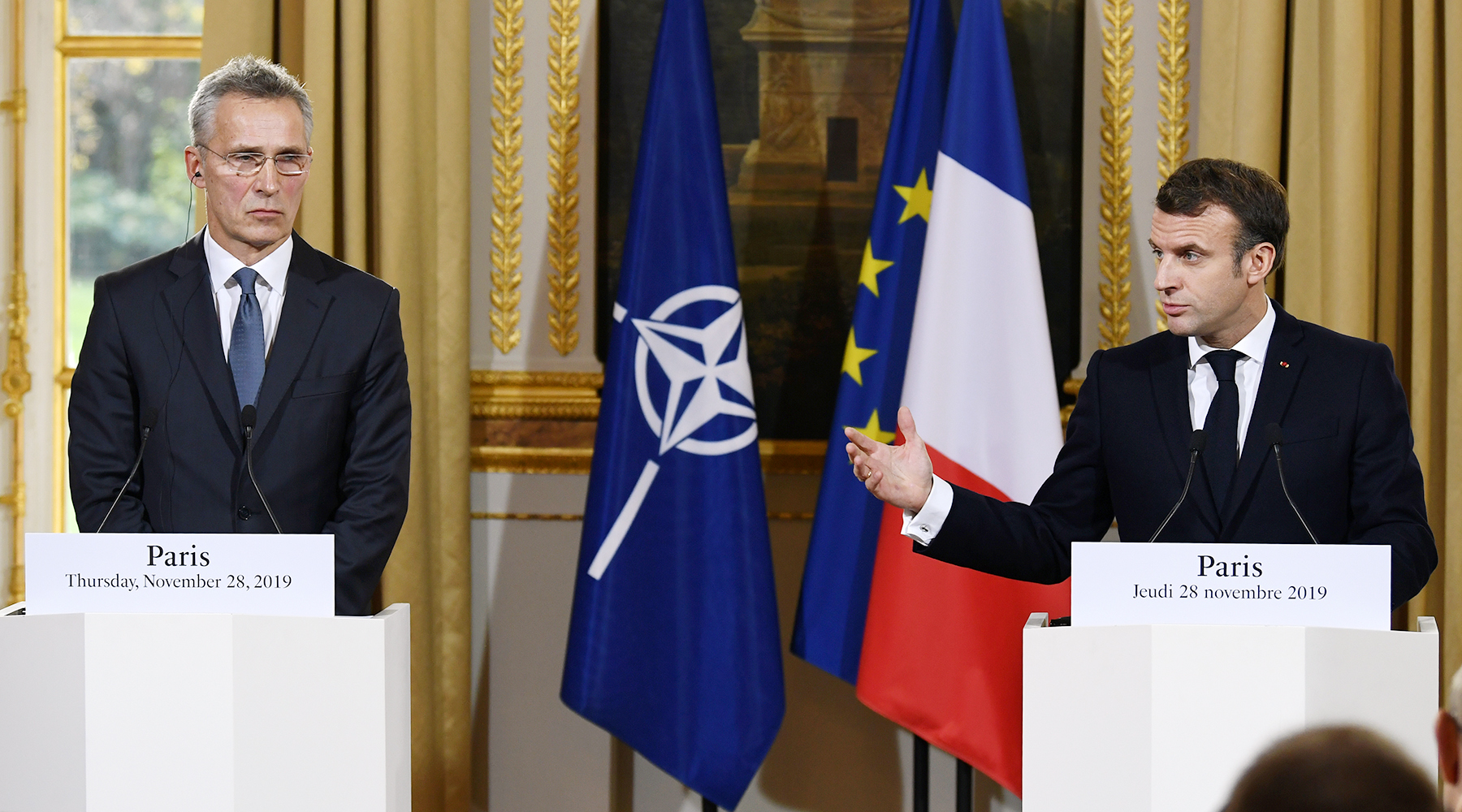France did not accept Russia's proposal to introduce a moratorium on the deployment of medium and shorter-range missiles in Europe and other regions. This was announced on Thursday, November 28, by French leader Emmanuel Macron during a press conference with NATO Secretary General Jens Stoltenberg. At the same time, he emphasized that the Russian initiative was perceived as a "basis for discussion."
“We did not accept the moratorium proposed by Russia or the offer of accommodation, but we took it as a basis for discussion,” Macron quotes TASS.
At the same time, the head of the Fifth Republic noted the need to build a “new architecture of trust and security in Europe” with the participation of Russia, as well as to build a “clear and strong” dialogue with Moscow.
Recall that in September it became known that Vladimir Putin addressed a number of countries in Europe and Asia with a message in which he proposed a moratorium on the deployment of medium- and shorter-range missiles in a number of regions of the world. This was a response to the US withdrawal from the INF Treaty.
According to the press secretary of the President of the Russian Federation Dmitry Peskov, in this way the Russian leader made an attempt to prevent "destabilization of the situation in terms of global security and stability."
Putin later emphasized that Russia will develop medium- and shorter-range missiles, as they are already in the US arsenal, but will only deploy them as a response.
Meanwhile, Macron expressed the opinion that it is necessary to begin negotiations on arms limitation, in which not only the Russian Federation and the United States, but also European countries will participate.
“The agreement that I stand for, and which will replace the INF Treaty, should be the result of a lot of work to coordinate positions within the alliance - and especially between the countries of Europe. And this work involves the participation of Europeans in this treaty. We cannot give our security to the discretion of a bilateral treaty in which none of the Europeans is involved, ”said the French president.
Recall, on August 2, the United States of America unilaterally withdrew from the Treaty on the Elimination of Intermediate-Range and Shorter-Range Missiles (INF Treaty), accusing Moscow of violating the agreement because of 9M729 missiles.
However, at the beginning of 2019, the Ministry of Defense arranged a briefing, which revealed the technical characteristics of these missiles, confirming their compliance with the INF Treaty. Nevertheless, the military attachés of the United States and several other NATO countries ignored this event.
However, a little more than two weeks after withdrawing from the treaty, on August 19, the Americans conducted flight tests of a cruise missile, which had previously been banned - its range exceeds 500 km.
- NATO Secretary General Jens Stoltenberg and French President Emmanuel Macron
- AFP
- © Bertrand GUAY
Meanwhile, as early as the beginning of November, Russian Foreign Minister Sergei Lavrov said that NATO countries, apparently, were not going to agree to a moratorium proposed by Moscow.
“The answer is given orally in the sense that Russia has already deployed its missiles in Europe - in the Kaliningrad region. Therefore, there can be no counter moratorium. This is again done on the basis of allegations that we tested the 9M729 missile for a range prohibited by the agreement, that is, more than 500 km, ”Lavrov explained.
In turn, Defense Minister Sergei Shoigu pointed out that the United States withdrew from the INF Treaty because the agreement ceased to be in Washington’s interests “against the backdrop of China’s growing military and economic power, as well as Russia's restoration of its defense potential.”
According to Dmitry Novikov, first deputy chairman of the State Duma’s Committee on Foreign Affairs, the statement by Emmanuel Macron that there is a basis for discussion is a positive signal and fits into the general line that the French president follows in foreign policy.
“The European community, in principle, is concerned about the position of the leadership of the United States, aimed at scrapping the agreements that have long been the guarantor of world peace. In addition, a number of Macron’s statements containing NATO’s assessments are also a signal that the French president is ready to defend the interests and needs of those European forces that advocate a more independent US policy and for a configuration of the world where Europe will be able to defend its interests in independence from Washington behavior. This should be regarded as a positive trend, because it gives a chance for the triumph of a sound position, ”the parliamentarian said in an interview with RT.
According to political analyst Yuri Svetov, there is still hope that NATO will heed the French leader’s words about the need to build a dialogue with Russia.
“I would like to hope that these are the first streams that will merge into the river, and the agreement on medium and short-range missiles will be concluded in a different form, in a different form. Hopefully, you should not expect this to happen quickly. Moreover, we still have to worry about the fate of the contract CHB-III, which is about to expire, ”he explained.
In turn, political analyst Alexander Asafov suggested that NATO Secretary General Jens Stoltenberg could influence the position of Emmanuel Macron on the moratorium. Earlier, the German publication Frankfurter Allgemeine reported that the French president’s readiness to carefully study and discuss the initiative of Vladimir Putin in various formats.
“Macron set himself the task of becoming such an international moderator and leader of Europe, having established a new European army and a number of other institutions. He brings France out as an international player. He tells Stoltenberg unpleasant things about Russia in order not to automatically be included in the list of countries that are “controlled” by Moscow, ”the source said.

